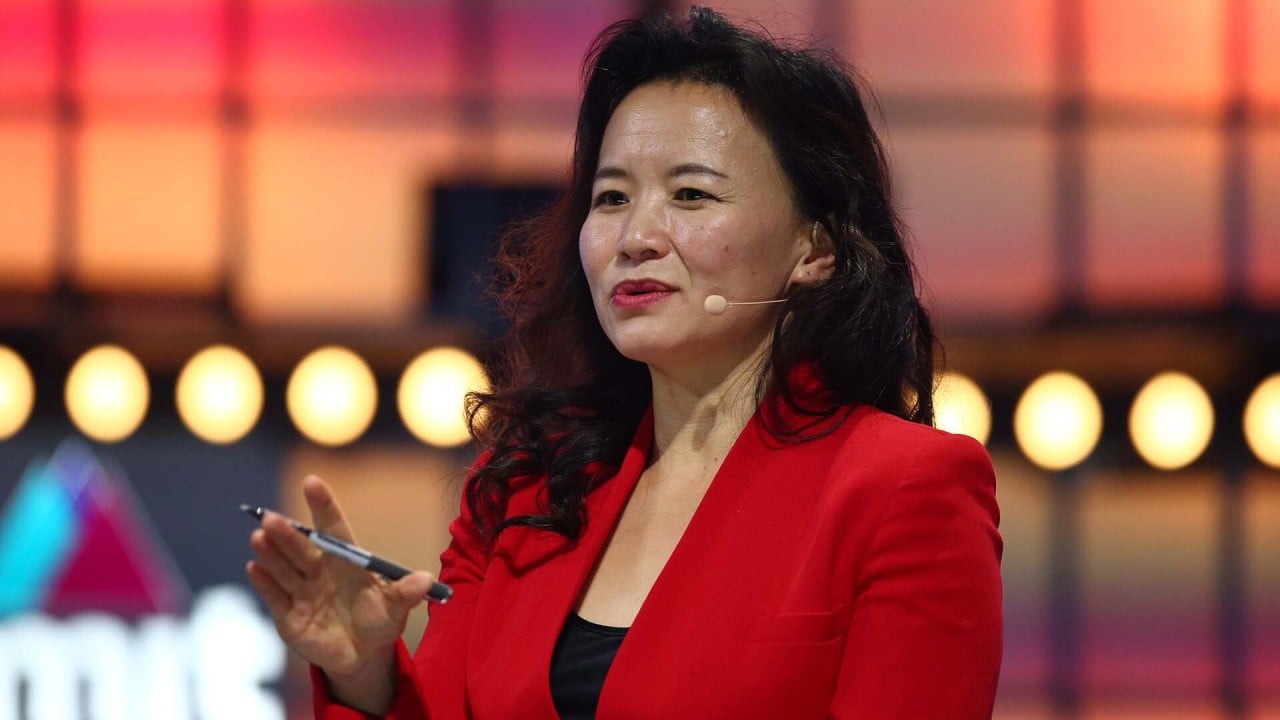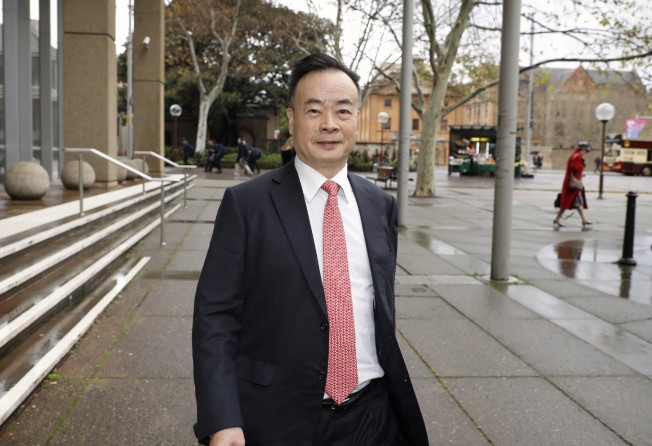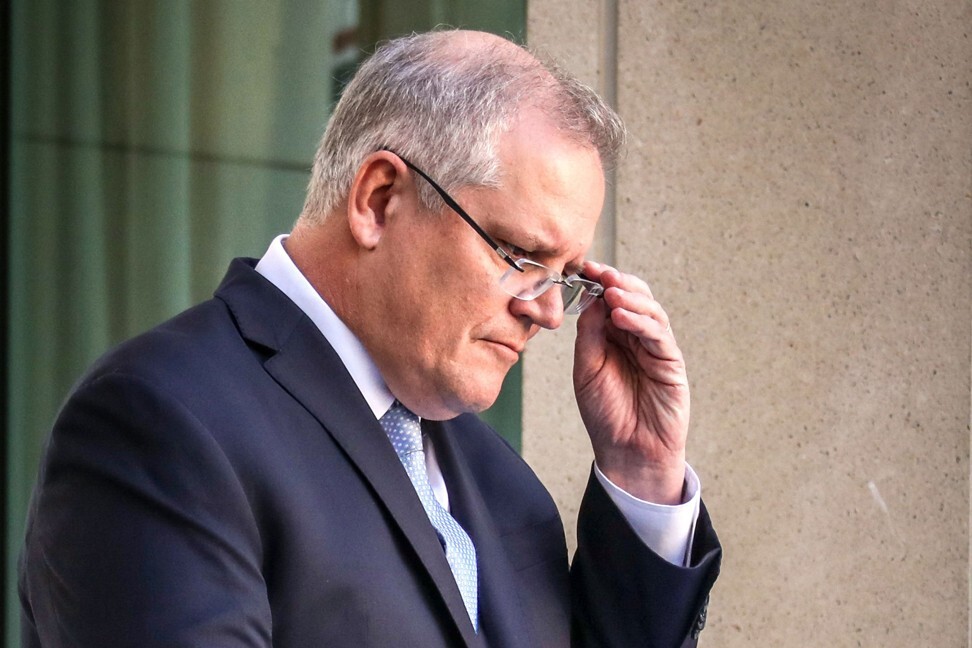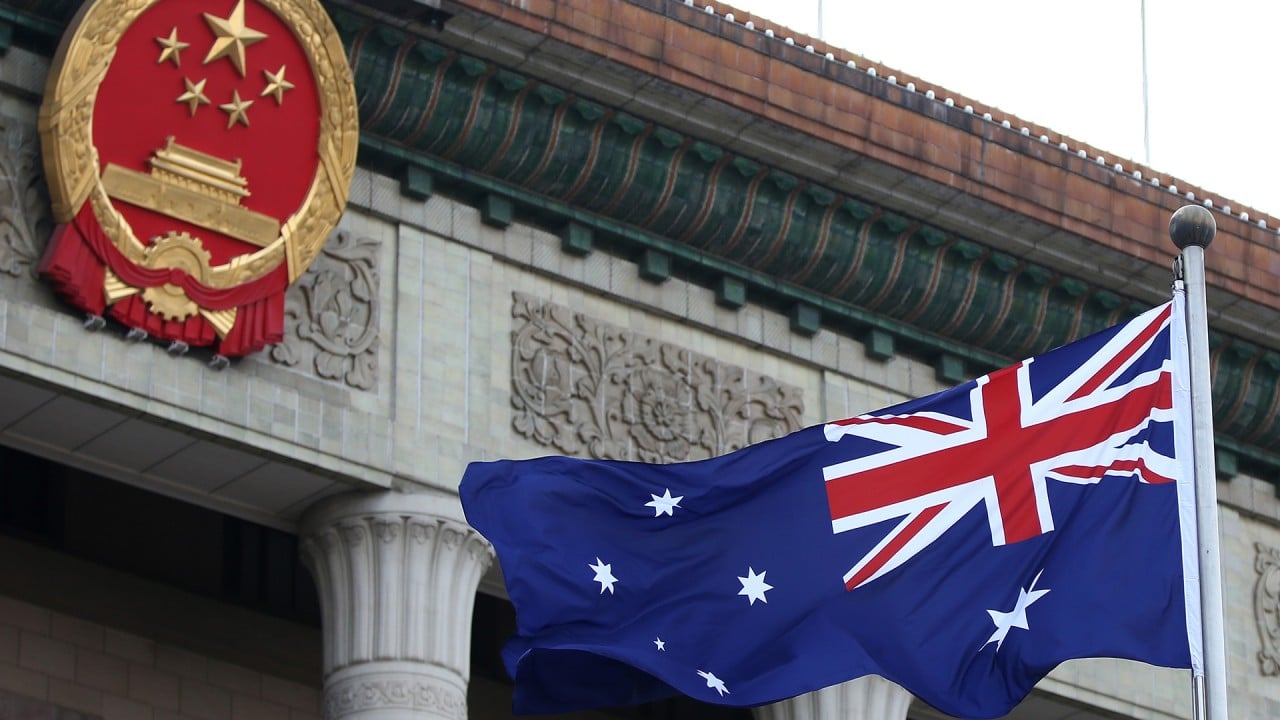
01:51
Australian journalist Cheng Lei formally arrested in China for ‘illegally supplying state secrets’

Nearly four years after an Australian current-affairs television programme aired a report alleging that Chinese-Australian billionaire Chau Chak Wing was a corrupt lobbyist acting for the Chinese government, his name was finally cleared.
The Australian Federal Court ruled earlier this month that he had been defamed and granted him a payout of A$590,000 (US$450,000), while the producers of the defamatory programme, the ABC and Fairfax Media, were ordered to pay his costs, marking another major victory in court against similar allegations.
In the past two years, Chau has won A$280,000 in damages from Fairfax and has received smaller settlements from other outlets.
This time, the court found that the Four Corners programme Power & Influence had defamed Chau on four counts, including the allegation that he had paid a US$200,000 bribe to United Nations official John Ashe to advance China’s interest at the United Nations.

01:51
Australian journalist Cheng Lei formally arrested in China for ‘illegally supplying state secrets’
The court said, among other things, that the programme had led viewers into believing Chau was a fifth columnist – or an agent seeking to undermine a country from within – even though the producers provided no such evidence and had failed to establish the truth of the matter.
However, it rejected two of Chau’s claims – that the programme had portrayed him as a spy and that he had paid Sheri Yan, who was jailed in 2016 for conspiring to bribe Ashe, to help him to infiltrate the Australian government on behalf of the Chinese Communist Party.
But hours after the verdict was handed down, several Australian news outlets – including the two defendants, Fairfax (which is now owned by Nine Entertainment) and the ABC – published articles on their websites about a US Federal Bureau of Investigation into Chau’s company, Kingold Investments, this time as a result of the FBI report being tabled by backbencher politician Tim Wilson in parliament the same day.
Relying on parliamentary privilege – legal immunity to report on anything occurring in parliament – the reports said Wilson told the chamber that while Yan was charged by the FBI with bribing Ashe, Chau’s role in providing funds was “obscured” by the defamation cases.
The FBI documents showed that Chau, who made his fortune in Guangzhou real estate, had told investigators he had approved a donation of US$200,000 from Kingold to Ashe for the “alleviation of poverty” but would never have done so had he known the payment was not going into an official account.
But the news reports by Fairfax and the ABC did not mention that the FBI report had already been presented as evidence in the defamation case but had been ruled as insufficient proof of Chau’s guilt. The Australian Federal Court had also earlier criticised the two news outlets over their dependence on information presented in parliament as evidence.
The timing of the FBI report being tabled in parliament and the subsequent media coverage once again showed how politicised the debate about national security and foreign interference in Australia has become, particularly in the media, as negative sentiments towards China’s rising assertiveness grow within society.
In Australia, suspicions of Chinese influence persistently extend to those of Chinese ethnicity and those who extol the importance of a balanced relationship with China. Local politicians and commentators have found themselves targeted as China sympathisers in McCarthyist political witch-hunts.
Greg Barns, the national spokesman for the Australian Lawyers Alliance, said he was startled that the media’s pursuit of Chau continued straight after the court decision.
“Here you have a clear judgment from a senior federal court judge in favour of Chau, and they immediately use the protection of [media] privilege to continue the campaign against him,” he said.
“I have not seen this happen before. It showed a lack of respect for the court’s judgment.”
Allan Behm, head of the international and security affairs programme at The Australia Institute, a Canberra think tank, explained that while reporting on the FBI documents and their tabling in parliament were normal practices, the documents needed to be considered on their own merits.
“The documents … need to be seen for what they are: FBI documents detailing their investigations. They are not briefs of evidence, nor do they amount to proof of wrongdoing,” he said.
“At this stage, no one knows where the FBI reports came from. One can guess, and evidently someone thought that it was OK to distribute them in a way that could damage Dr Chau’s reputation. That is pretty standard leaking.”
GOVERNMENT PROPAGANDA?
Peter Manning, a veteran journalist and former executive producer of the Four Corners programme, said it had become increasingly common for Australian security agencies or politicians to leak information so the resulting story would be a “convenient form of government propaganda” in the form of “access journalism”.
Wanning Sun, a professor of media and communication studies at the University of Technology Sydney, has said the same access journalism had been used in anti-China reports on “Chinese student spies” and Huawei’s 5G technology, among others.
Indeed, as ties between Australia and China, its top trading partner, have sunk to new lows over the past year, with Beijing taking a series of trade actions against Canberra, Prime Minister Scott Morrison has faced domestic pressure to get tough on Beijing on issues ranging from human rights in Xinjiang to its aggression in the South China Sea.

Wilson, of Morrison’s Liberal Party, made headlines in 2019 when he joined demonstrators in Australia protesting against police treatment of Hong Kong protesters, and was quoted by local media as saying he did it to show China that “Australia was watching”.
But there was another issue at play, Manning said.
“Australians [also] generally have a ‘race problem’ who see ‘the other’ – Aboriginals, Muslims, Arabs, Chinese, and so on – as not like them, and populist journalists respond to this fear,” he said, adding that this raised ethical concerns when the media failed to “transparently prove allegations and hence fail in expensive defamation cases”.
In the Chau case, the media appeared to be “pushing for a further ‘right to defame’ under the rubric of ‘freedom of speech’”, he said.
“It’s a confrontation in a democracy between the judicial system and the executive,” he said. “It’s Trumpian.”
The former Fairfax foreign correspondent Hamish Mcdonald said he felt there was “certainly collusion between China hawks in the Canberra press gallery and parliament” but doubted that it would draw the attention of Australia’s journalists’ union, the Media Entertainment & Arts Alliance (MEAA), whose president, Marcus Strom, would only say is in favour of stronger protections for journalists covering the news.

07:55
Australia ditched diplomacy for ‘adversarial approach’ to China and ‘a pat on the head’ from US
Several journalists and media lawyers agreed that the court’s ruling on Chau had dealt a blow to public-interest journalism and followed the pattern of defamation laws generally favouring the complainant.
“Some of Australia’s most important law reforms in recent years would never have happened without the work of journalists, including those at the ABC,” said Michael Douglas, a senior lecturer at the University of Western Australia Law School.
Before the Chau decision, he said, progress had already been made on legal reforms “to provide stronger protections for responsible journalism” done in the public interest. Although the reforms have been approved by all Australian states’ and territories’ attorneys general, only one state, New South Wales, has passed them.
Michael Bradley, managing partner of the law firm Marque Lawyers, rebutted the idea that there was a problem of journalists colluding with politicians on leaks and said the rule of law in Australia remained sound.
“It also has to be accepted that, in a free country like Australia, some of the opinions that get expressed will be repellent and that there will always be a risk of reputations being unfairly attacked.”